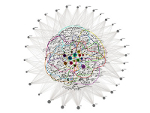 Outreach
Outreach
OUTREACH
EUNOIA final event: Big Data, Urban Models and Transport Planning: the EUNOIA project
Cities are growing rapidly worldwide, and the quest for sustainable urban transport is becoming an increasingly urgent challenge for all major cities around the world. To make informed decisions, urban planners and policy makers need to evaluate the impact of different policies, measures or infrastructures on a range of performance indicators. Urban simulation models are used for this purpose. New data sources containing geolocated information open promising opportunities for the formulation, calibration and validation of urban models. At the same time, this abundance of information often comes at the expense of low quality, noisy or biased data. The ability to mine, blend and analyse data from multiple sources is becoming increasingly important to overcome these issues and extract relevant information about the underlying behaviour of individuals.The EUNOIA project intends to exploit the opportunities opened by big data to develop new urban models and ICT tools empowering city governments and their citizens to design better mobility policies.
In this event we will explain how different, non-conventional data sources — such as mobile phone records, credit card data, smart ticketing, or online social networks — have been used to characterise activity-travel patterns in cities. We will present the theoretical results of the project, such as the modelling of the interdependencies between social networks and travel behaviour, and the integration of such models into large-scale agent-based transport simulations. And we will explain how these new data, models and tools have been put at work to address relevant policy questions in the cities of Barcelona, London and Zurich. In addition to presentations from experts in the field, the day will include a round table where future research directions will be discussed. Following a workshop format, the event is particularly aimed at policy makers, urban planners, transport practitioners, and professionals from industry and academia.
More information: Big data, urban models and transport Planning: the EUNOIA project
![]()










